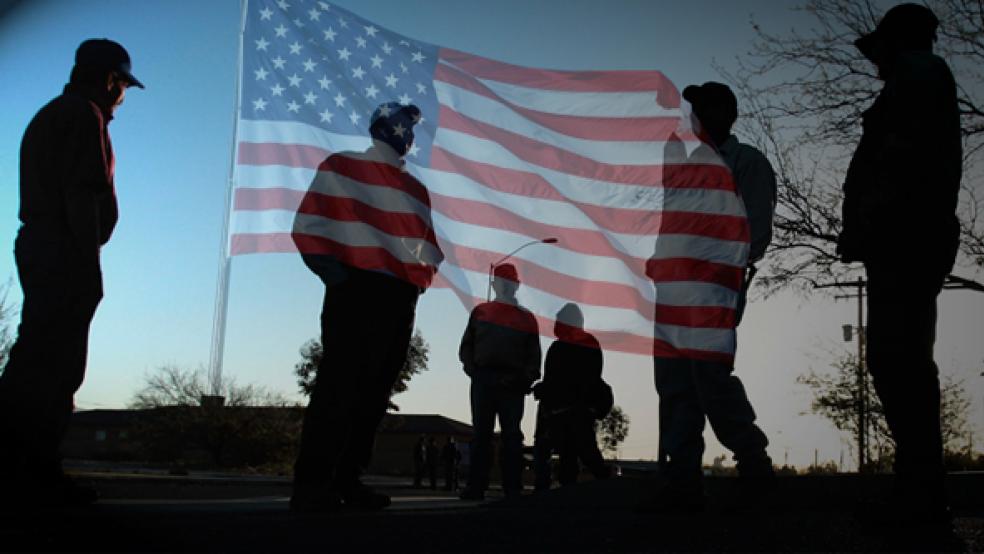The surge of tens of thousands of unaccompanied children to the United States from Central America’s Northern Triangle — Honduras, El Salvador and Guatemala — has sparked an emotional debate over the crisis on the U.S.-Mexico border.
The three regional presidents and many Democrats in the United States demand more aid, arguing that the situation is a refugee crisis rooted in U.S. neglect of the region, which has led to growing gang violence. Meanwhile, many Republicans say that the crisis is due to lenient U.S. immigration policies and that most migrants are primarily seeking economic opportunity.
Related: Poll Finds Large Majority in U.S. Fear the Impact of Immigrants
Here are some myths from all sides of the debate.
1. U.S. immigration policy is to blame for the surge of unaccompanied minors.
The crisis at the border is a result of a convergence of factors largely unrelated to U.S. immigration law. A crucial element was the ability of coyotes, who smuggle migrants across the border, to orchestrate a campaign of rumors that intersected with increasing violence and hopelessness in Central America.
The coyotes had seen their trade wither since the 2008 recession, with more people returning to the region than coming to the United States. They needed to drum up new business. So, sensing an opportunity as gang-fueled violence rose and the region’s governments foundered, they spread word that children and mothers with children who came to the United States would be allowed to stay.
Some Republicans blame President Obama for encouraging this message with his 2012 executive order allowing some illegal immigrants who came to the country as children before 2007 to stay and work legally without the threat of deportation.
Related: Obama's August Playbook - Own the Immigration Fix
This policy is not well understood in Central America and has been grossly mischaracterized in the local media.
The coyotes’ promises resonated because corruption and the implosion of the rule of law in the Northern Triangle have pushed many people past a psychological tipping point; slim hope for a better future has given way to a profound belief that there is no future possible if their children stay.
Gangs and transnational criminal organizations control ever-larger swaths of territory in the region. They blow up buildings with C-4 explosives and battle one another with assault rifles while the state retreats. Measured by homicide rates, the Northern Triangle countries are more dangerous than war zones such as Afghanistan or Iraq, Gaza or Ukraine. Less than 5 percent of the homicides are prosecuted. Gang violence has grown especially brutal toward girls, who are routinely gang-raped and forced into membership by the age of 11.
If you want to blame U.S. policies, look back to the mid-1990s, when the United States began deporting thousands of hardened criminals to Central America. That severely aggravated regional problems. Though, ultimately, the region’s leaders are responsible for the failure of their states.
2. More aid to the Northern Triangle would address the crisis’s causes.
Calls for more aid and increased foreign investment are unrealistic in light of the dysfunction of the Northern Triangle governments.
The rule of law there has been replaced by transactional politics: Whoever pays the most gets the results they want, and the police, judiciary, executive branch and legislature are at the service of the highest bidder. In this environment, more money would inevitably mean more corruption.
Related: Wave of Migrant Children Threatens to Overwhelm System
Government leaders in the region squandered the international aid and goodwill that existed after their countries’ civil wars ended in the early 1990s. Leaders pocketed hundreds of millions of dollars that could have been used to tackle violence, create jobs, strengthen institutions and otherwise avert the current crisis. For example, former Salvadoran president Antonio Saca (2004-2009) was expelled from his own party after an internal investigation found that he had stolen more than $219 million while in office.
Since 2008, the United States, through the Central America Regional Security Initiative, has provided the region with $649 million. Yet by every measure — homicides, kidnappings, prison overcrowding, functionality of the judiciary — the situation has gotten worse. As demonstrated by Plan Colombia — the $1.6 billion program that helped the Colombian government weaken drug cartels and Marxist guerrillas — until there is genuine political will to change what is so badly broken, more money is not wise policy. Instead, the United States should press for real reform while working with the small pockets of each government that do function.
Each step is fragile. U.S. support to Guatemala’s courageous attorney general, Claudia Paz y Paz, brought significant results, until she was abruptly forced from her post this year.
3. Increased border security is always helpful.
While the current surge in minors is record-breaking, thousands of unaccompanied children have been crossing the border for years in ebbs and flows. Enforcement has never been the primary determinant. Economic and social factors in their home countries carry far more weight.
Sophisticated networks of human smugglers, drug traffickers, weapons merchants and bulk-cash smugglers have endured for generations, showing incredible ingenuity in crossing the border. A portion of the millions of dollars the coyotes have earned from the surge is surely being invested to devise new and different ways across. Border security can never patch all the holes.
Related: If Obama Offers Amnesty, Impeachment May Follow
Even if expensive new security measures would be more effective than past ones, budget constraints and the inability of Congress to pass meaningful legislation indicate that such measures are unlikely to be available, anyway.
4. The people fleeing to the United States are the poorest of the poor.
Coyotes charge $7,000 to $10,000 per person to provide passage to the United States, usually half in advance and half after crossing the border.
The average annual per capita income in the Northern Triangle is less than $6,000. Even with help from families abroad, those at the bottom of the economic ladder rarely have the means to make the trek. (Those attempting the trip on their own usually lose everything they have and often die along the way because they are left to the mercy of police, drug-trafficking organizations and common thieves.) Tens of thousands of the truly destitute and desperate are migrating internally or moving to Costa Rica or Belize — nearer, more peaceful nations now being overwhelmed by the migrations. The poorest go as far as their scarce resources permit. The sole objective is to get away from the gangs and endemic violence.
5. Sheltering these immigrants invites gangs into U.S. communities.
This argument is common among communities refusing to host Central American children while they await deportation hearings. And there’s some truth to the notion that the Mara Salvatrucha (MS-13) and Calle 18 gangs are using the situation to accelerate a strategy of seeking asylum in the United States and trying to expand their reach. But the vast majority of those now arriving are fleeing gangs and their violent, predatory control. Gang members are unlikely to find sanctuary among these people, who already know and detest them.
The more serious threat is to young migrants forced to return to their countries. They are likely to be targeted by gangs notoriously vicious toward people who seek to flee their influence. Gangs can and do find out who attempted to leave, meet them at arrival shelters and exact retribution.
This article originally appeared in The Washington Post. Douglas Farah is president of the national security consulting firm IBI Consultants and has worked in Central America since 1985, including as a correspondent for The Washington Post from 1987 to 1997.
Read more at The Washington Post:
Political Crisis Escalates in Iraq
Where Goes the Neighborhood?
Exodus from the Mountain






